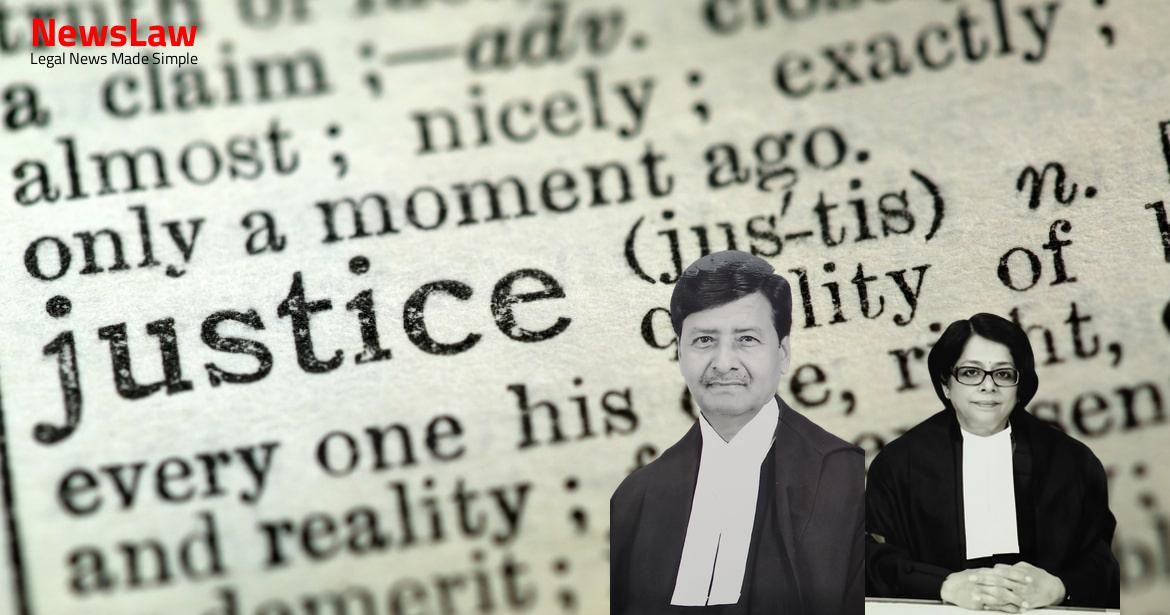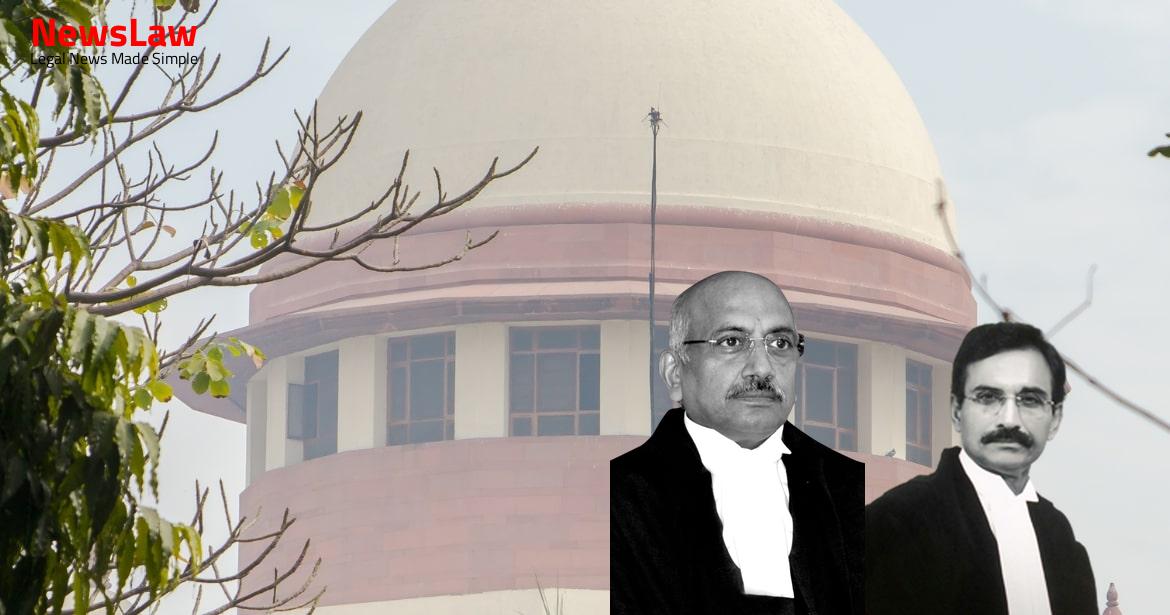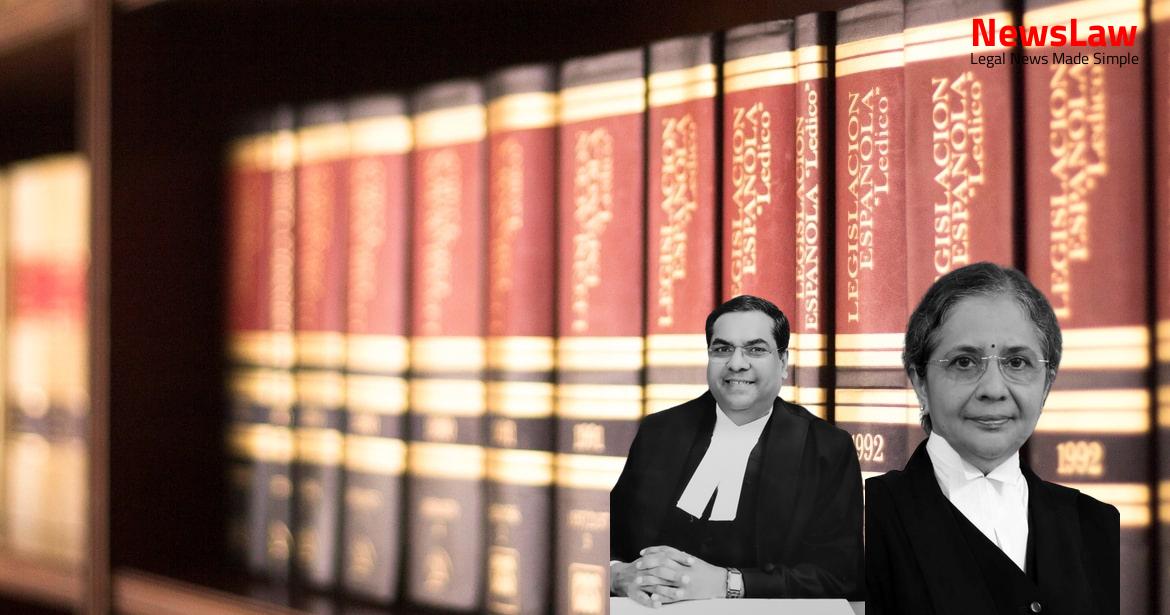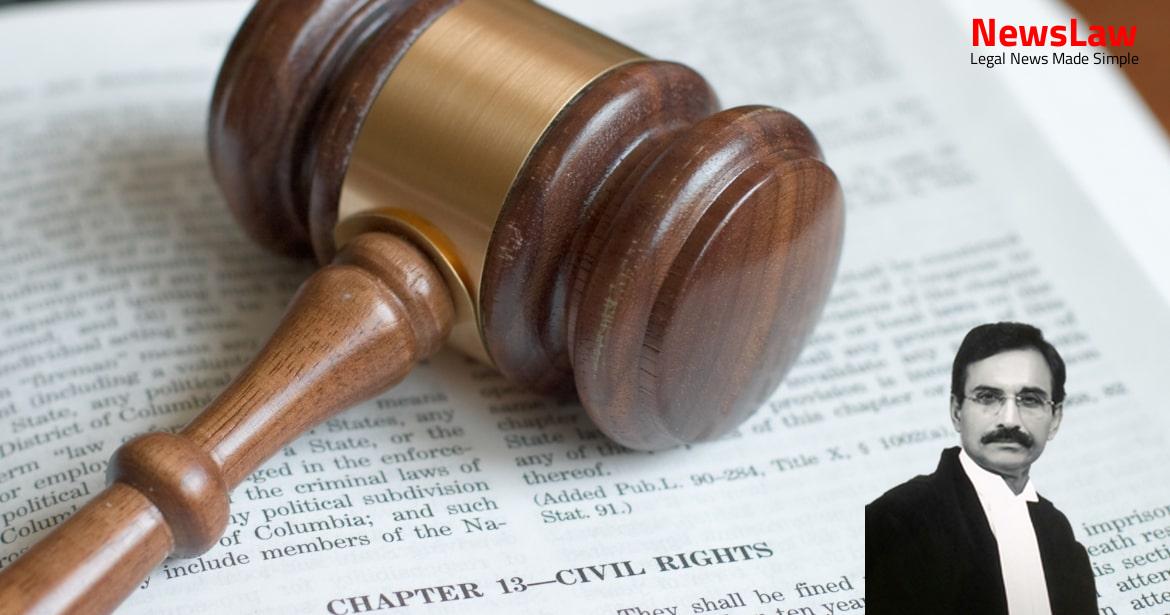In a significant legal development, the Supreme Court of India has issued a landmark judgment in the case concerning provident fund benefits for contractual employees at Pawan Hans. This ruling has far-reaching implications for labor rights and the obligations of employers towards their workforce. Stay tuned to understand the nuances of this crucial decision that impacts the financial security of employees in the aviation industry.
Facts
- The Appellant-Company framed and notified the Pawan Hans Employees Provident Fund Trust Regulations on 01.04.1986.
- The Company deposited the provident fund amount on 09.04.2019, which was invested in a Fixed Deposit.
- The Company provides helicopter support services to the oil sector, off-shore exploration operations, remote and hilly areas services, and charter services for tourism.
- The Company is classified as a non-scheduled operator under Rule 134 of the Aircraft Rules, 1937.
- The Union made representations to extend the benefits of the PF Trust Regulations to contract employees, some of whom had been working for almost 20 years.
- The Ministry of Labour, Government of India, issued a communication on 08.01.1989 regarding exemption to departmental undertakings.
- The Company was incorporated on 15.10.1985 under the Companies Act, 1956, and registered as a Government of India company.
- The Appellant-Company instituted the Pawan Hans Employees Provident Fund Trust on 26.03.1987 for regular cadre employees.
- The Trade Union filed CWP No.325 of 2017 on 20.12.2016, seeking provident fund benefits for contract workers.
- The Regional Provident Fund Commissioner issued a letter on 24.05.2017 regarding the shareholding pattern of the Appellant-Company.
- Amendments were made to the EPF Scheme to include aircraft or airlines establishments not owned or controlled by Central or State Government.
- The High Court directed the Company to enroll all eligible contractual employees under the EPF Scheme.
- The Company was directed to deposit the employees’ contribution with the Regional Provident Fund Commissioner from the date they became eligible till remittance.
- Benefits under the EPF Act were ordered to be extended to the members of the Trade Union and other similarly situated employees.
- The judgment emphasized taking a liberal view in extending social security benefits to contractual employees.
Also Read: Analysis of Maintenance Laws and Enforcement Procedures
Issue
- The issue to be considered in the present Civil Appeal is whether the Appellant-Company is obligated to provide provident fund benefits to its contractual employees under the PF Trust Regulations or the EPF Act.
- It needs to be determined if the Appellant-Company is exempt from the provisions of the EPF Act and the EPF Scheme.
- The crucial question is whether the contractual employees of the Appellant-Company are eligible for provident fund benefits.
Also Read: Land Ownership Dispute under Regional and Town Planning Act
Arguments
- a) The Appellant-Company argues that it is excluded from the applicability of the EPF Act due to not falling under Schedule I or being covered by the Notification of 22.03.2001, which expressly excludes airline companies owned or controlled by the Central Government.
- b) The Central Government holds 51% shareholding in the Appellant-Company, and the Board of Directors are appointed by the Ministry of Civil Aviation. The Company is governed by guidelines from the Department of Public Enterprises.
- c) Despite the EPF Act becoming applicable to the airline industry, the Appellant-Company, being owned and controlled by the Central Government, was historically excluded from the Act.
- d) The Notification of 22.03.2001 is deemed inapplicable to the Appellant-Company due to the specific exclusion in Section 16(1)(b) of the EPF Act for establishments owned or controlled by the Central Government.
- e) The Appellant-Company claims that the members of the Respondent-Union and other similarly situated employees have already received their financial benefits in full.
- The High Court directed the Company to contribute to the provident fund of contractual employees.
- The contractual workers are paid directly by the Company.
- Benefits under PF Trust Regulations or EPF Act must be provided to all employees, including those on contractual basis.
- Members of the Respondent-Union are in direct employment of the Company.
- The Company is not controlled by the Central Government and is managed by a Board of Directors.
- The term ’employee’ in PF Trust Regulations is widely defined.
Also Read: Legal Analysis on Compensation in Fatal Accident Case
Analysis
- The EPF Act is a beneficial legislation that should be liberally interpreted.
- The Company failed to make a case for exclusion from the EPF Act.
- The PF Trust Regulations were only applied to ‘regular’ employees, excluding contractual employees.
- The Company claimed exemption under Section 16 of the EPF Act, but did not meet the criteria.
- There is no distinction in the EPF Act between permanent, temporary, contractual, or casual employees.
- The Company did not satisfy the two tests required for exemption under Section 16(1)(b) of the EPF Act.
- The provisions of the EPF Act should be implemented for all contractual/casual employees engaged by the Company.
- The Company was directed to extend the benefits of the EPF Act to all its employees.
- It was found that the Company was not owned or controlled by the Central Government, failing the first test for exemption.
- The Company had its own PF Trust Regulations, but they were not applicable to all employees as required by the second test for exemption.
- The denial of statutory benefits like provident fund was deemed illegal, arbitrary, and discriminatory.
- Section 1(3) of the EPF Act outlines the establishments to which the Act is applicable.
- The Act applies to every establishment with 20 or more employees, specified in Schedule I, or as notified by the Central Government.
- The Central Government has the authority to exempt certain classes of establishments from the Act based on financial position or circumstances.
- A twin-test was established by the court for establishments to seek exemption from the EPF Act.
- The Act does not apply to establishments under the Co-operative Societies Act, establishments under Central or State Government control with provident fund benefits, or other establishments as notified by the Central Government.
- An ’employee’ is defined as a person employed for wages by the Corporation, excluding those employed by a contractor or as trainees.
Decision
- The Regional Provident Fund Commissioner is directed to determine and compute the amount to be deposited by the Company and the employees for the period of January 2017 to December 2019.
- The Company must pay Simple Interest @ 12% p.a. on the amount payable towards provident fund contribution for the same period.
- The computation statement by the Regional Provident Fund Commissioner must be submitted to the Court within 12 weeks for further directions.
- Employees need to deposit their matching contributions for the period of January 2017 to December 2019 along with 6% p.a. interest after the Company’s contribution is remitted to the PF Trust.
- From January 2020 onwards, contributions will be as per the PF Trust Regulations.
- Employees who superannuated, expired, resigned, or ceased employment are not eligible for this benefit.
- Costs of Rs. 5,00,000 are awarded to the Respondent-Union for litigation expenses.
- Members of the Respondent-Union and similar contractual employees will be enrolled under the Pawan Hans Employees Provident Fund Trust Regulations for uniformity in service conditions.
- The High Court’s direction to pay contributions from eligibility till remittance date is modified per this Judgment.
Case Title: PAWAN HANS LTD. Vs. AVIATION KARMACHARI SANGHATANA (2020 INSC 51)
Case Number: C.A. No.-000353-000353 / 2020



